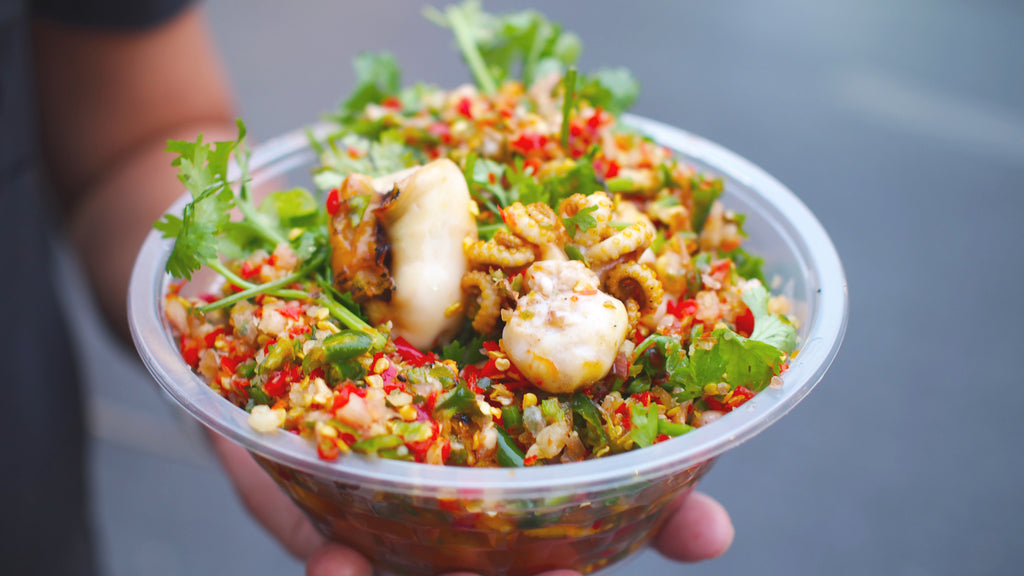Recipe: Pickled Baby Octopus
The art of pickling has been part of culinary traditions for centuries, a practice born out of necessity for preserving food in times when refrigeration was a luxury. Pickling involves submerging food items in a mixture of vinegar, salt, sugar, and spices, creating a blend of flavours and textures.
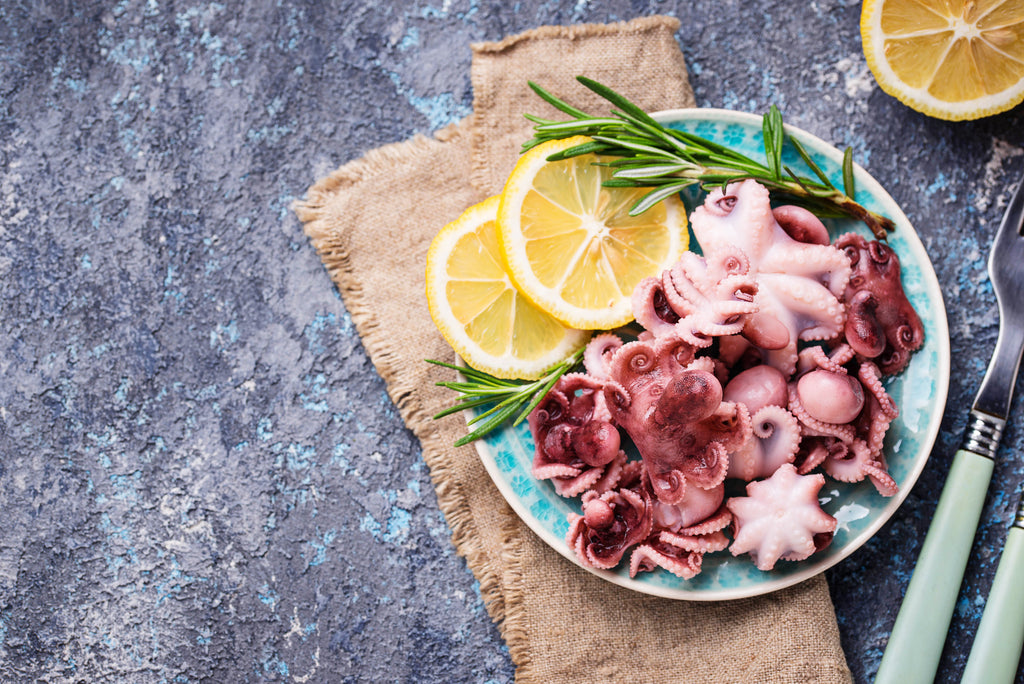
Baby Octopus at Dawson’s
Australian Baby Octopus can be hard to come by, with a lot of the market saturated by imported products. We stock Mori Seafoods Australian Baby Octopus Berrima year round in our freezer section.
Sourced from the pure and shallow waters of Coffin Bay and the west coast of South Australia, the Baby Octopus Berrima stands as a testament to sustainable fishing practices.
This delicacy is procured through eco-friendly trap capture methods, involving specialized tubes affixed to lines meticulously tended to by fishermen. This approach not only ensures the preservation of the local marine ecosystems but also delivers a tender and delectable taste that speaks of the pristine waters from which it originates.
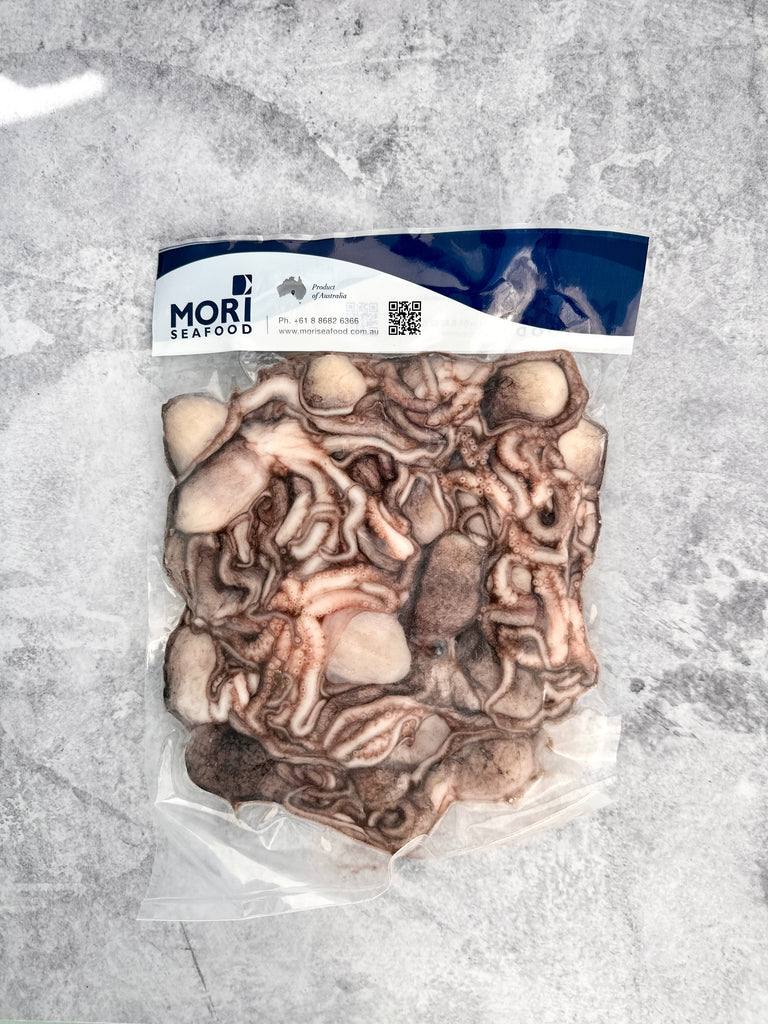
Ingredients:
Baby Octopus:
- 1kg Baby Octopus, cleaned
- 3L water
- 5 Fresh Rosemary Sprigs
- 5 Whole Cloves
- 5 Bay Leaves
Pickling Mixture:
- 350ml extra virgin olive oil
- 2 cloves garlic, diced
- 250ml red wine vinegar
- 80ml rice wine vinegar
- 2 tbs white sugar
- 2 tbs your favourite dried herbs (oregano, rosemary, thyme)
- 1 red chili, diced (omit if you don’t like spice)
- 2 tbs lemon juice
- 1 tsp salt
- 1 tsp black pepper
- Zest of one lemon
- Fresh parsley, roughly chopped to serve
Method:
- In a large pot, place water, rosemary sprigs, cloves and bay leaves & bring to a boil.
- Add baby octopus to water & simmer until cooked. The octopus flesh when cut will be white and tender. When the octopus is cooked, remove from the water and chill in ice water.
- While your octopus cools, make your pickling mixture by combining all pickling ingredients into a large bowl.
- Drain octopus and add to the pickling mixture. Toss to combine.
- Transfer the octopus and the pickling solution to a glass container and refrigerate. Let it marinate for at least 24-48 hours
- To serve, sprinkle with fresh parsley
Tips and Tricks for the Perfect Baby Octopus
The First Step: Pre-Boiling the Octopus
Before the pickling adventure begins, pre-boiling the baby octopus is a crucial step. Not only does this soften the texture, making it tender, but it also prepares the octopus to absorb the pickling flavours efficiently. Begin by rinsing the octopus thoroughly and placing it in a pot of boiling water. Let it simmer gently until the octopus becomes tender.
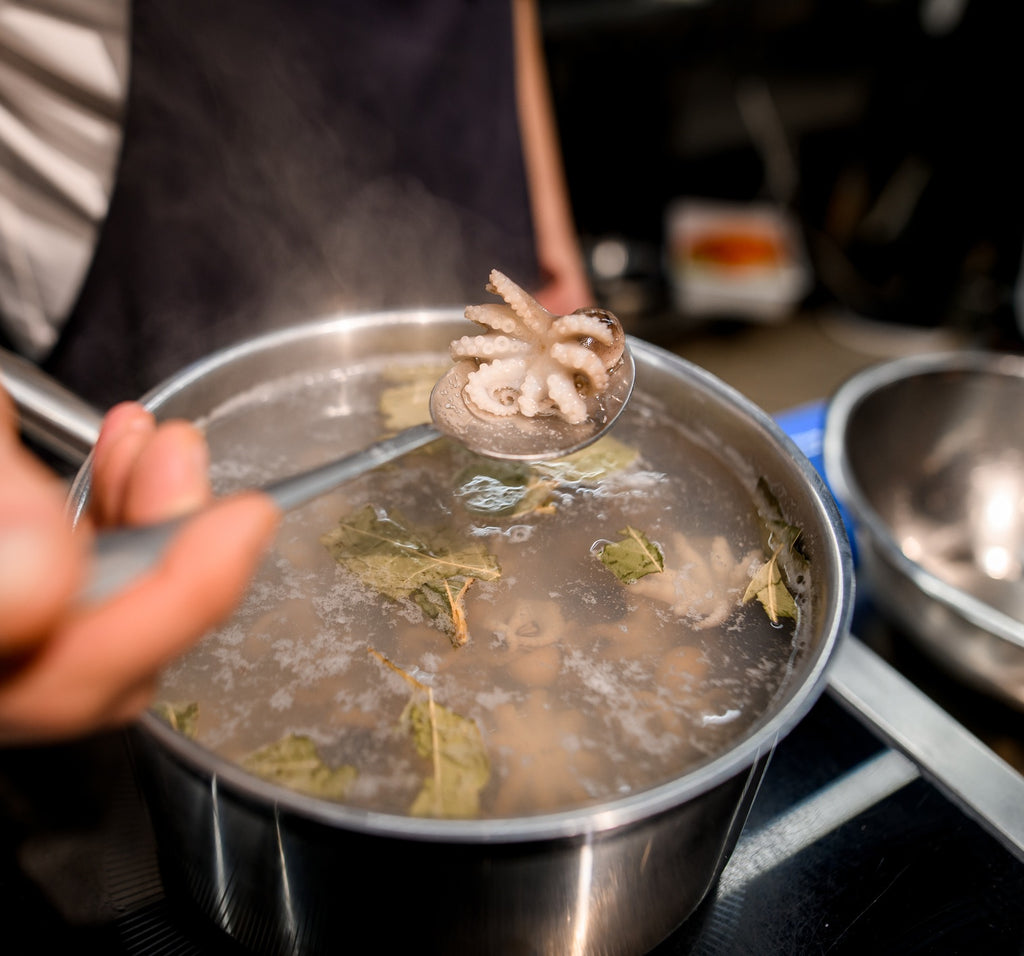
The Pickling Process
To create the perfect pickling solution, start with a blend of vinegar, seasoning, sugar, and spices. The vinegar infuses a delightful tang, while the salt, pepper and sugar balance the flavours. You can get creative with spices, adding favourites like bay leaves, peppercorns, chili and thyme. Once your pickling solution is ready, immerse the pre-boiled octopus in it, allowing the flavours to meld and permeate the meat.
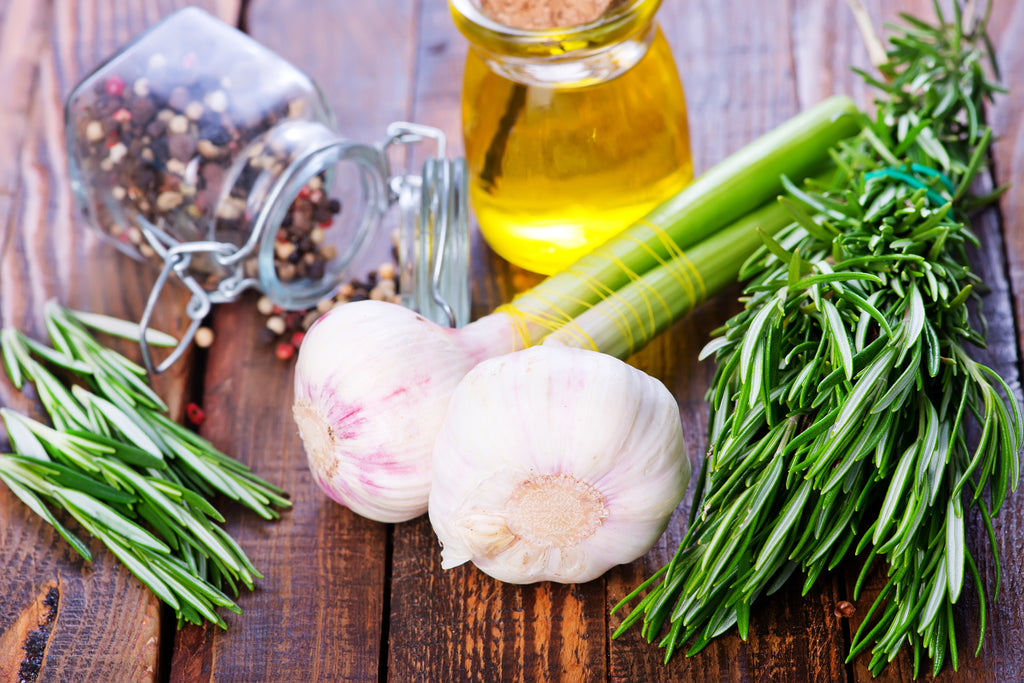
Mediterranean Flavours
The Mediterranean Sea, abundant with seafood, inspired ancient Mediterranean civilizations to develop methods of preserving and pickling. Pickling was a crucial preservation technique, allowing communities to enjoy seafood beyond its immediate availability.
Mediterranean pickled octopus often incorporates regional spices such as oregano, thyme and sage and also pairs well with olives, anchovies and or sundried tomatoes. It is a versatile dish, served as a tapa, appetizer, or a component of a larger seafood spread.
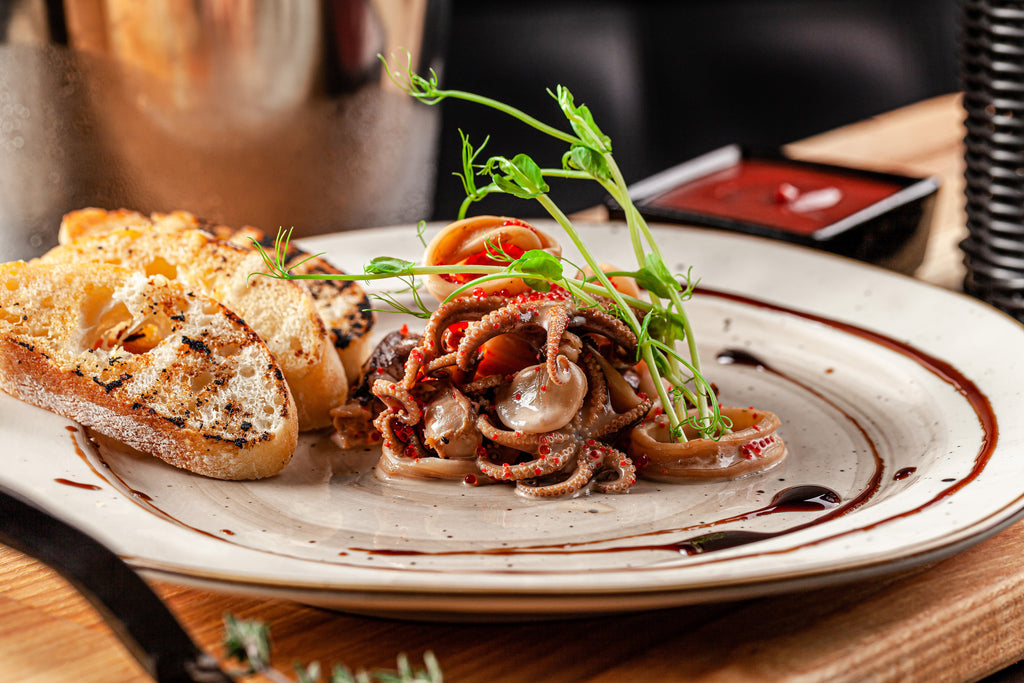
Asian Flavours
In Japan, pickled octopus is often known as "tako no sunomono." It's made by thinly slicing cooked octopus and marinating it in a mixture of rice vinegar, soy sauce, sugar, and sometimes dashi (Japanese stock). It's a refreshing and tangy dish, commonly served as a salad or appetizer.
Various Southeast Asian countries, such as Thailand and Vietnam, have their versions of pickled octopus or marinated seafood. These often incorporate local flavours like lemongrass, coriander, chili, and herbs for a distinctive taste.
